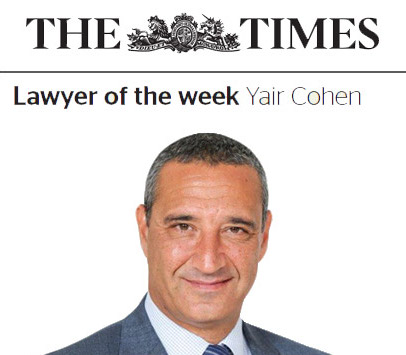Learn about right to be forgotten

What you can learn about a right to be forgotten to prepare a better right to be forgotten request
The right to be forgotten is founded on principles of privacy and the right to control the way your private data and information are being processed. Today, the real purpose of a right to be forgotten request for many is to have an opportunity to begin a new chapter in life or be given a second chance.
It is important to learn about the right to be forgotten as much as you possibly can, before making a right to be forgotten request as better understanding of how the right to be forgotten works, will enhance your likelihood of success.
Origination of the right to be forgotten
What is the difference between a right to be forgotten and a right to erasure
Who can apply for a right to be forgotten
Does the right to be forgotten apply to companies
Why so many right to be forgotten applications are rejected by search engines
What to do if your right to be forgotten request is refused
Where can I find more information about the right to be forgotten
Origination of the right to be forgotten
The right to be forgotten has been part of EU law for many years. For people who live in the UK, in the early days, a right be to forgotten request was based on data protection law, common law and other related legislations, such as The Rehabilitation of Offenders Act. The right to be forgotten was turned into a formal right following a judgement made in the EU Court of Justice where a Spanish national (M. Gonzalez) made a complaint to the Spanish Data Protection Agency against La Vanguardia newspaper, Google Inc. and Google Spain in relation to search results, which contained a mention of some of his historic financial difficulties.
He felt that the information was no longer relevant to his financial status or to an initial character assessment of him by other people. The Spanish Data Protection Agency rejected the claim against the newspaper for publishing the information in the first place because the newspaper was entitled to publish the information as part of the right to free expression. However, the EU Court of Justice ruled that an internet search engine operator is a data processor and as such, the way by which Google was processing data about Mr Gonzalez was unfair. This case opened the floodgate for millions of individuals across Europe who also wanted search results which relate to their past to be delisted from search engines.
Eventually, the right to be forgotten was embedded in one of the most significant European laws is recent time: the GDPR. The right to be forgotten is particularly important to people who made a mistake earlier in their life and who have since been unable to move on with their life due to the popularity of internet search engines. It could be devastating and extremely frustrating to learn that when people search your name on Google and all they can find is an old, spent criminal conviction, by which they then go on to judge you.
GDPR states that you can ask search engine providers to stop processing your personal data without undue delay if the data is misleading, excessive, incorrect, irrelevant or out of date. There might be circumstances where the search engine operator might have lawful reasons to reject your right to be forgotten request. You should, therefore, make sure that your right to be forgotten application is based on valid grounds and at the same time, avoid providing reasons which will easily be rejected.
What is the difference between a right to be forgotten and a right to erasure
The right to be forgotten and the right to erasure are essentially the same thing. GDPR governs how data must be collected, processed and erased. The right to be forgotten received a lot of press after the judgement in 2014 at the EU Court of Justice but it is referred to in formal European laws as the right to erasure.
Who can apply for a right to be forgotten
Currently, anyone who lives in a state within the European Economic Area (EEA) can apply for a right to be forgotten, as well as people who have sufficient links to EEA states. Applying to have search engines to remove search results about you is free but there is not a guarantee of success. Parents can make a right to be forgotten request on behalf of minors and lawyers can apply on behalf of their clients. In cases of a couple or a family, each member of the family or each partner of a relationship must apply to each search engine provider independently. Applications under a right to be forgotten on somebody else’s behalf are only permitted if you can produce a valid letter of authority. There is no right to apply for a right to be forgotten on behalf of a dead person.
Does the right to be forgotten apply to companies
The right to be forgotten is a right which was given to individuals in relation to the way their own data is being processed. There are limited circumstances where a company may apply for search links to be delisted under a right to be forgotten. This is only available in relation to a director or another officer of a company where the search links relate to the processing of the company officers' personal data.
Why so many right to be forgotten applications are rejected by search engines
The right to be forgotten process is often misunderstood. Many right to be forgotten applications are refused due to bad wording of the application, insufficient information, inclusion of invalid grounds and omission of valid ones. Search engines are often inconsistent with their decision and in some cases, the assessors who review your application might simply have a dislike to you or to the conduct which is attributed to you on the articles that you wish to have removed from internet search results.
Very often, despite the perception of simplicity that the search engine right to be forgotten template might create, your right to be forgotten request might not be as straightforward as a ticked box on the form (asking if you are a doctor, say), which can automatically put your request into the reject pile.
What to do if your right to be forgotten request is refused
If your right to be forgotten request is refused, you can appeal the search engine’s decision to decline your request directly to the Information Commissioner's Office (ICO). This could be a long process and you should consider obtaining legal advice prior to submitting your application to the ICO. You may also submit a GDPR Notice to the search engine provider.
Where can I find more information about the right to be forgotten
You can find more information about the right to be forgotten on the ICO website. Our experience is practical and is based on hundreds of real life right to be forgotten cases that our firm has assisted clients with. On our website, we have made and will continue to make, every attempt to explain the different issues which are associated with right to be forgotten applications and based on real life case studies. Fortunately, many visitors to our website have been pleasantly surprised to find this information which covers a fairly complex area of law.
Popular topics
MORE INFORMATION
Right to be Forgotten Solicitors
We are the only law firm in the UK with a dedicated team that specialises exclusively in making successful Right to be Forgotten applications.
Call Free on 0800 612 7211
Privacy Policy. 2020 © A Right to be Forgotten. All rights reserved



